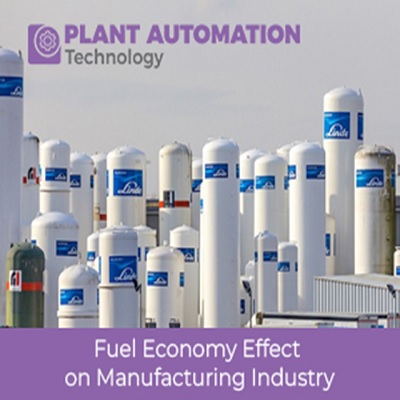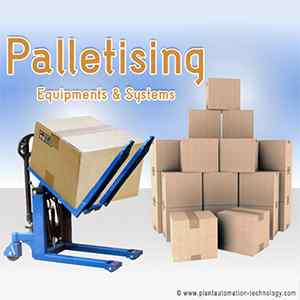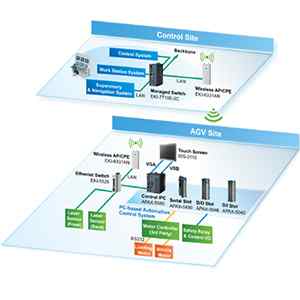Fuel Economy Effect on the Manufacturing Industry

Fuel is a major input into manufacturing production, transportation, and operation. Fuel efficiency has a significant impact on this industry. While less efficient fuel sources may have the opposite effect, meaning they can increase manufacturing costs and lower revenues, and more efficient fuel sources can enable lower manufacturing costs and higher revenues. Additionally, the fuel economy effect may affect how manufacturing companies transport goods domestically and internationally.
The manufacturing sector may benefit from environmentally friendly fuels like electric power or biofuels as alternatives to traditional petrol. These sources can lower prices, increase efficiency, and decrease emissions all at the same time. This can help industrial firms maintain competitiveness and boost profitability. Fuel sources, however, can harm manufacturing. Some fuel sources-like fossil fuels—are less effective than others and raise production costs. Additionally, using these fuels can harm the environment, which might affect manufacturing companies.
The fuel economy and the manufacturing sector have a long and convoluted history together. Manufacturers have long sought to compromise between production needs and carbon footprint and fuel efficiency. Manufacturers of cars and other vehicles, which for years have been among the biggest emitters of greenhouse gases and other pollutants, are particularly difficult. The good news is that automakers have significantly improved fuel efficiency. Automobile manufacturers have spent a fortune on research and development aimed at cutting pollutants and enhancing fuel efficiency. This has led to more modern technology, lighter materials, and more effective engines. These developments have made it possible for automakers to produce vehicles with comparable performance and features but enhanced fuel economy than the rest of the market. But there have been obstacles along the way to this success. Even while fuel costs can offset consumer cost savings, producing fuel-efficient cars is more expensive. In addition, many of the materials and technology used to increase fuel efficiency can complicate a vehicle's design, which raises production costs.
Fuel efficiency influences vehicle design, with automakers often having to alter their vehicles' design to meet fuel economy rules such as the Corporate Average Fuel Economy (CAFE) standards in the United States. These standards require automakers to meet certain fuel efficiency targets across their fleet of vehicles.
Fuel economy impacts manufacturing. For instance, the complexity of the assembly process might result in manufacturing delays when manufacturers employ lighter materials to increase fuel efficiency. The manufacturer may incur increased expenses as a result.
Fuel economy may significantly impact manufacturing in many ways.
Here are some potential impacts:
- Cost of production: Fuel is a substantial input expense for many factories, especially those that depend on transportation to transfer goods and raw materials. Production costs may rise due to higher fuel prices, which could ultimately affect goods and services prices.
- Competitive advantage: Manufacturers who invest in fuel-efficient technology and processes outperform those who don't. These businesses may be able to lower customer pricing or increase R&D investment by reducing fossil fuels and lowering operating expenses.
- Regulatory compliance: Governments implement regulations and laws for better fuel economy and fewer carbon emissions. Manufacturers who adhere to these requirements may receive tax breaks or other incentives; those that do not may be hit with fines or other penalties.
- Innovation and technology development: Fuel economy requirements might encourage manufacturers to spend money on research and development of more advanced technologies, such as electric and hybrid vehicles that are more environmentally friendly and fuel-efficient. As a result, manufacturers may experience innovation and expanded commercial opportunities.
- Supply Chain Management: The supply chain may be impacted by reduced transportation costs due to improved fuel economy. By adopting fuel-efficient vehicles or improving logistics and transportation strategies, manufacturers can reduce costs.
- Environmental Regulations: Governments all over the world are minimizing greenhouse gas emissions in response to increasing climate change concerns. Manufacturers can comply with these standards and avoid penalties by increasing fuel efficiency.
- Consumer Demand: As consumers become more aware of the environment, they increasingly take fuel economy into account while making decisions. Offering fuel-efficient products can give manufacturers a competitive edge in the market and help them win over environmentally conscientious customers.
Conclusion
The fuel economy’s effect on the manufacturing industry is a significant factor. Companies that proactively control fuel usage and invest in fuel-efficient technologies could benefit greatly. While it has increased fuel efficiency and decreased emissions, it has also presented the industry with considerable difficulties. These difficulties include rising costs, production delays, and detrimental effects on sales. Despite these difficulties, the manufacturing sector has improved fuel efficiency significantly and is still doing so.
Enhanced profits and more competitive manufacturing costs may result from the development of new and more effective fuel sources. Though not all fuel sources are equally effective, using them can result in higher prices and environmental harm. Therefore, the manufacturing sector must know how fuel economy affects its operations. It requires this knowledge to keep those operations profitable and efficient.







